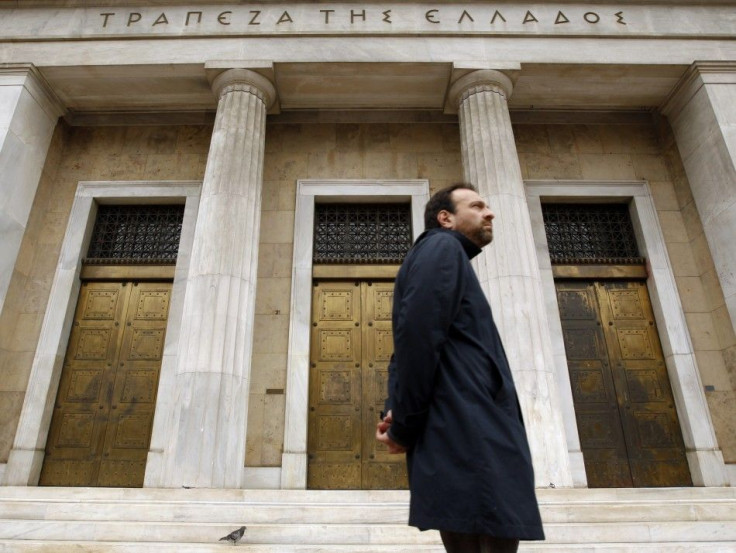Debt restructuring stares at Greece as Moody's downgrades rating

Moody's Investors Service downgraded Greek credit rating on Monday, further roiling European credit markets and signaling the possibility of the debt-hit nation opting for a debt restructuring.
Moody's said the Greek government's fiscal consolidation efforts were compromised by a revenue gap as well as reform bottleneck in the healthcare sector and state enterprises.
The credit rating agency slashed Greek government bond ratings to B1 from Ba1 and said it may cut further. The fiscal consolidation measures and structural reforms that are needed to stabilize the country's debt metrics remain very ambitious and are subject to significant implementation risks, despite the progress that has been made to date, Moody's said.
The Greek government issued a statement saying the rating downgrade announced was completely unjustified. Decisions such as Moody's today can initiate damaging self-fulfilling prophecies, the finance ministry said.
Tottering under the burden of bulging debt, the Greek government had accepted a $154-billion combined bailout deal from the EU and IMF in May last year.
In order to comply with the terms of the bailout deal the government revised its 2011 budget, pledging to prune the deficit to 7.4 percent of the gross domestic product (GDP), ensuring the bailout money will flow without hiccups from the IMF and the ECB.
However, analysts had predicted that tough austerity measures would not prevent an eventual debt restructuring. The Greek Government’s 2011 budget should be enough to ensure that it can continue to tap its €110bn bailout facility, but it does nothing to improve the medium-term outlook for the economy and public finances, Ben May, an economist at Capital Economics, had said in a note.
© Copyright IBTimes 2025. All rights reserved.





















